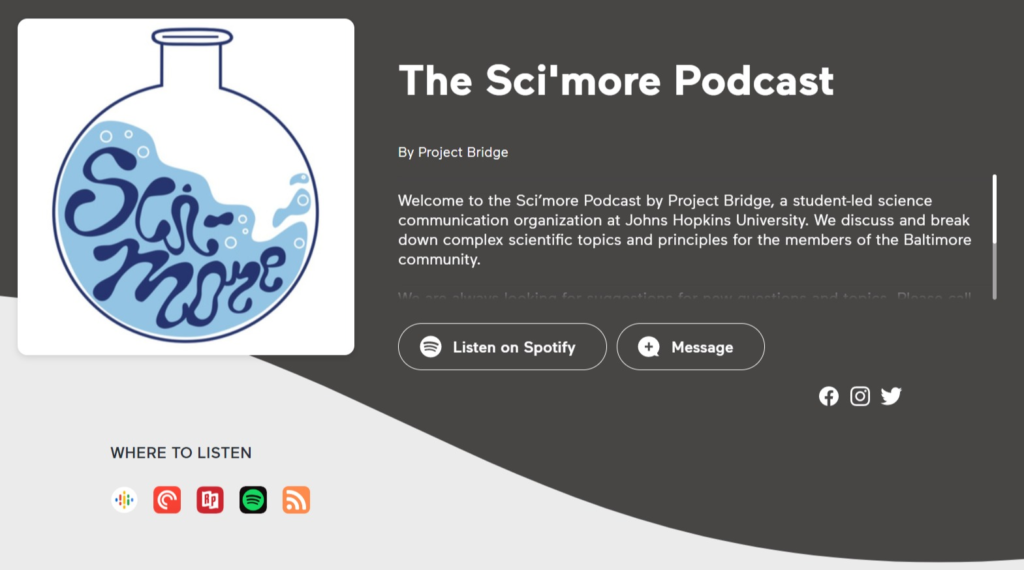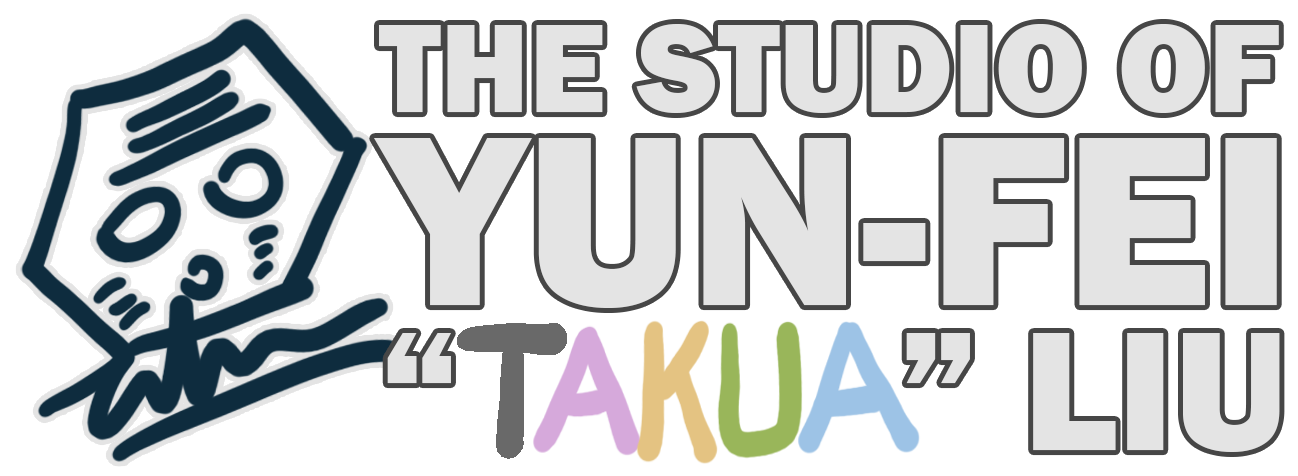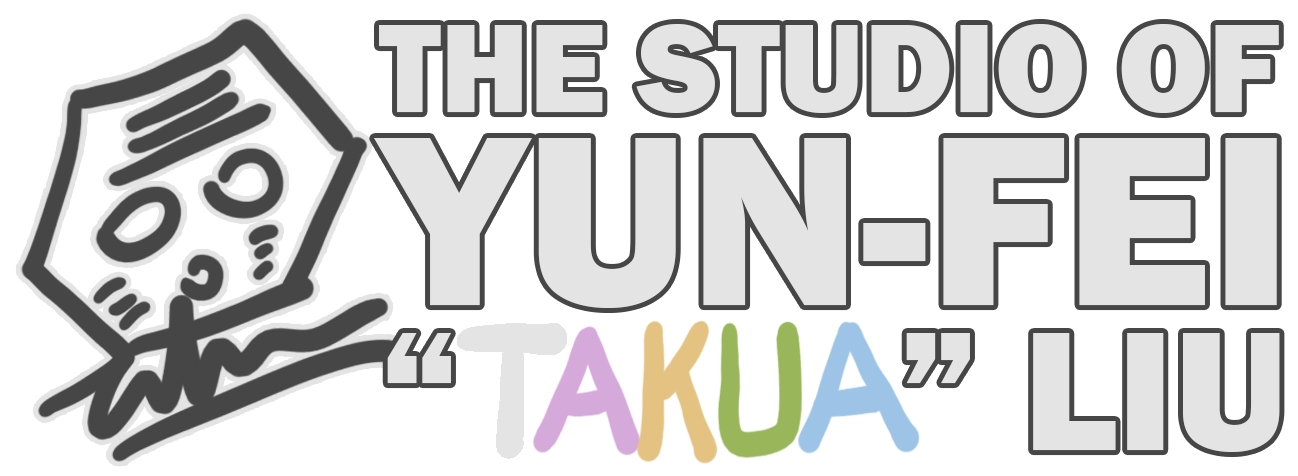I’m one of the founding members of the Sci’more Podcast.
The Sci’more Podcast was founded in 2020, amid the COVID pandemic, by members of Project Bridge. Project Bridge is a student-led science communication organization based at Johns Hopkins University. Two members of Project Bridge, Michael Dryzer and Ashton Omdahl, initiated this podcasting project with a view to discussing and breaking down complex scientific topics and principles for the members of the Baltimore community. A group of about 7 graduate students, including myself, responded to their call.
It’s interesting to note that all founding members of Sci’more Podcast but I do biomedical researches. Well, hearing that I study in the department of “Psychological and Brain Sciences”, most new friends think I’m doing biomedical research. But actually, what I do is closer to psychological and cognitive science. Some people might say it’s “applied biomedical research”, and that’s also fine.
After some consideration, preparation and debates, we released our first episode about COVID vaccine at the beginning of 2021. The title of the show “Sci’more Podcast” debuted along with our first episode. “Sci’more” is a combination of “science” and “B’more”, the commonly used shorthand for “Baltimore”. Therefore, the name “Sci’more” conveys our aspiration to bring “more science to Baltimore”.

My love for science podcasts
I have been a fan of science podcasts for about a decade. I began my life as a podcast listener by listening to BBC’s The Why Factor, which was discontinued after 2020. Along the way, I get to know many other long-lasting good shows. Every week, I enjoy learning about the latest groundbreaking news in scientific research from Nature Podcast and Science Podcast. I also like the Thought-provoking conversations offered by Brain Science, You Are Not So Smart, and Mindscape podcasts. Recently, my friends recommended to me Science Friday, The Science Hour, and New Scientists Weekly. I will definitely give them a try!
Among the podcast I’ve been listening to, my favorite is The Hidden Brain show. The refined documentary style adopted by The Hidden Brain makes it not only informative, but also auditorily rich. I enjoy not only its elegantly compiled psychological insights, but also its journalistic touch to the topics.
My dream regarding podcast editing is to create episodes as inspiring and as entertaining as The Hidden Brain.

My role as the chief editor of Sci’more Podcast
Since our first episode, I have been in charge of audio editing. In addition, I co-produced the sixth episode “Why do we love our gardens here in Baltimore?” with another founding member Emily Han.
With limited resources, I use the free but reliable software Audacity to edit our Sci’more episodes. I discussed with my teammates and selected from myriad royalty-free music clips the one that is the most suitable for the opening music of our show. For the time being, Sci’more is a conversation-based show. Each episode features an expert in a scientific domain, interviewed by one of our quit-witted and enthusiastic team members.
We conduct our interviews via Zoom. During the interview, I (or another junior editor in the group) will monitor the host and the guest’s audio quality. Whenever a connection glitch corrupts their speech, I will ask them to repeat the previous sentence so that we don’t lose precious information.
After the interview, I will edit the audio files to make it sound good and keep the length of the episode within 20-30 minutes. Basically, my job includes the following :
- Removing long pauses, filler words, and utterances like “er…”, “well…”, “like…”, and “you know…”.
- Removing redundant sentences where the speaker re-iterates a previous point.
- Removing whole sections which are irrelevant to the episode topic.
- Re-order sentences or even sections whenever the removals above result in discontinuous and incoherent narratives.

To prune away the unnecessities while keeping the speech coherent, I and other editors have to re-listen to the recordings multiple times. As a consequence, we are much more familiar with what has been said than the speakers themselves.
Therefore, I’m confident to say that, our Sci’more episodes are rich in content and definitely worth listening.

